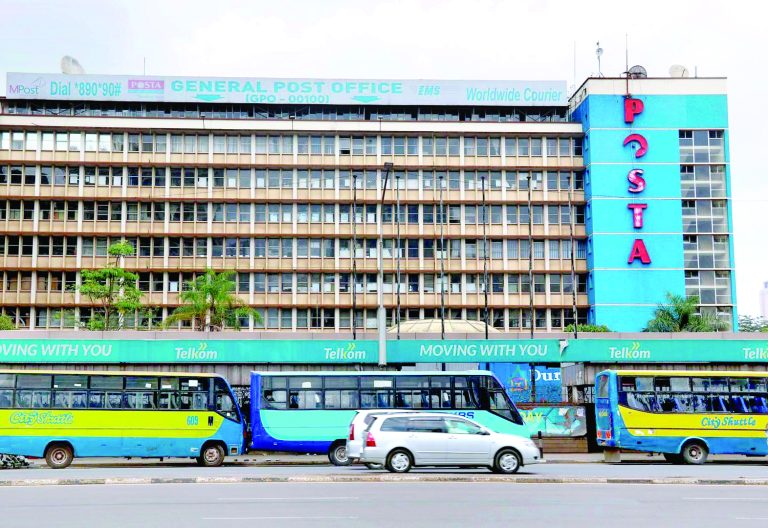Reformed business environment key to attracting investors
ADAN MOHAMED
For the last decade, some sub-Saharan African countries have seen an increase in inward foreign direct investment (FDI).
According to the East African Community (EAC) Trade and Investment Report, FDIs into the region increased to Sh1.15 trillion in 2019 from Sh570 billion in 2018, with all member countries posting impressive inflows over the time (2019).
Kenya has been one of the region’s largest recipients of FDI, with inflows increasing significantly since 2014, owing to increased investments in the mining, infrastructure, manufacturing, banking, construction, and information communications and technology (ICT) sectors.
China, South Africa, US, and UK have all established themselves as significant FDI providers for Kenya.
While other macroeconomic indicators are used by governments and international corporations to determine whether or not to invest in another country, regulatory and institutional issues are becoming increasingly important.
In a nutshell, the ease with which a country conducts business is critical. This awareness has resulted in a tidal change in the business climate in sub-Saharan Africa.
Governments have changed their legal and regulatory business environments to be more flexible and friendly.
Kenya began its journey roughly six years ago, when it decided to use the World Bank’s Doing Business worldwide assessment to assess its business environment as part of a strategic thrust guided by President Uhuru Kenyatta’s economic reform plan.
We set out to adopt legislation, re-engineer procedures, and reduce wholesale bureaucracy in overlapping areas of the private and public sectors, with the goal of becoming a top 50 nation in the Ease of Doing Business by 2022 — and went on to implement reforms in at least ten reforms areas to date with remarkable progress.
The areas are; starting a business, dealing with construction permits, getting electricity, registering property, getting credit, protecting investors, paying taxes, trading across borders, enforcing contracts, resolving insolvency and procurement.
Doing Business survey
Kenya was ranked 56th out of 190 nations in the World Bank’s Doing Business survey, released in 2019, and was among the most reformed countries.
Kenya has risen from 136th place in 2014 to third place in business reforms for three years in a row (2015, 2016 and 2017), making it the most improved country in Africa.
Among other legal improvements, the most transformative was the enactment of the New Companies Act 2015 and subsequent amendments in the Companies Amendment Act 2016.
This historical milestone meant that Kenya implemented legislation that were in line with modern business needs, a shift from the previous regulations, which were based on the 1948 UK Act, among other game-changinggovernance safeguard reforms.
It increased the requirements for related-party transaction disclosure, review, and approval by the board of directors.
Notably, Kenya was ranked top in Protecting Minority Investors in 2020, up from 98th place in 2014.
To attract new investments, considerable reforms in the area of insolvency resolution have been implemented.
This is the ability to allow the debtor’s business to continue during insolvency proceedings by ensuring that creditors are treated equally in reorganisation procedures and allowing creditors more involvement in the insolvency process.
Significant progress
Kenya has also made significant progress in contract enforcement, reducing the time and cost of resolving commercial disputes – as evidenced by major milestones such as the development of a more robust, coordinated Alternative Dispute Resolution (ADR) framework for Kenya – through the Judiciary and the Nairobi Centre for International Arbitration (NCIA), as well as the roll-out of the Small Claims Courts.
Trading across borders is another important FDI indicator. Kenya’s primary reforms as of 2020 centred around the creation of the Integrated Customs Management System (ICMS), the National Electronic Single Window, and the harmonisation of services provided by partner government departments.
These have tackled the arduous logistical processes of exporting and importing commodities, as well as the time and prices (excluding tariffs).
Inefficiencies in documentary and border compliance, as well as internal transportation, have been cleaned up thanks to the digitisation and harmonisation of these operations.
Regardless of these milestones, the question of whether this FDI has any impact on the Kenyan economy, small and medium businesses, and quality of life remains unresolved.
It must be stated that the link between FDI attraction and economic growth is inconclusive, especially in nations that are mainly liberal and diverse. An increase in FDI, on the other hand, has a beneficial influence on employment creation.
Irrespective of these milestones, a never-ending interrogation is whether this FDI brings any impact on the Kenyan economy, to small and medium businesses and quality of life. — The writer is EAC and Regional Development CS, and is in charge of the country’s business climate reform agenda














